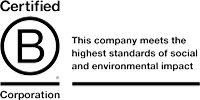To be truly regenerative, why not begin with organic?
When will we leave behind the harmful impact of chemical pesticides on our ecosystems and witness a shift towards organic practices? No need to (re)invent new concepts such as “regenerative” that can lead to greenwashing, let’s take actions now!
I. Introduction
The widespread adoption of “Regenerative” across various sectors, from firms to finance and agriculture, has gained substantial momentum. Here, Ecotone takes a resolute stance on this term.
II. Regenerative agriculture unmasked: exposing the greenwash made now of this term
The term “Regenerative Agriculture” has become, unfortunately, a convenient rebranding of conventional farming practices, “nature-positive farming,” or “smart agriculture,” leading to widespread confusion among stakeholders.
The change in terminology began with the start of the Regenerative Organic Certified (ROC) movement in 2017. It is concerning that, over time, this certification, initially conceived with good intentions, has been misappropriated. The emphasis on the most rigorous component, organic farming, has been diluted in favor of simplified practices that fall short of addressing the core issue.
The term “Regenerative Agriculture” is employed without restraint, providing industries with an opportunity to “greenwash” their productivity-focused approach. While they incorporate virtuous soil conservation practices like no-till, soil cover, and crop rotation, they disregard the essential local organic aspect.
Experts observed that this was the juncture at which the term ‘regenerative agriculture’ was hijacked by major non-organic agri-food corporations.
Unlike organic farming, which adheres to well-defined practices, regenerative agriculture allows for discretionary strategies without legal definition or control. Furthermore, industrial players, seeking flexibility compared to the stringent requirements of organic farming, do not commit to ROC certification
III. Our call to action: championing true sustainable agriculture, denouncing greenwashing
1. Now, for the majority of corporations employing the term ‘regenerative agriculture,’ the indiscriminate use of the term ‘Regenerative’ inadvertently supports the use of pesticides, contradicting the essence of authentic regenerative practices
2. As of today, we emphasize the risk that linking ‘organic agriculture’ with ‘regenerative agriculture’ could potentially mislead stakeholders and hinder progress.
3. The imperative for clear definitions, standardized practices, and robust impact assessments is crucial in ensuring the legitimacy and effectiveness of regenerative agriculture.
Having saying that, Ecotone endorses organic practices that foster biodiversity, encapsulated in the acronym SCALE:
– Strong commitment to EU organic regulations and practices as a foundational framework.
– Crop diversity and rotation to enhance soil fertility and health.
– Adoption of a range of agroecological practices that promote sustainable and environmentally-friendly food production.
– Limitation of the average plot size and encouragement of uncultivated spaces to support biodiversity.
– Effective cover crop management to preserve soil biodiversity.
– Establishment of agro-ecological infrastructure, such as hedgerows and vegetation strips, to provide habitats for beneficial insects and birds
By wholeheartedly prioritizing these practices and the organic framework, Ecotone is committed to genuine sustainable agriculture. We stand against greenwashing, advocating for a sustainable and biodiverse approach that safeguards the well-being of both ecosystems and communities.
What about you?






